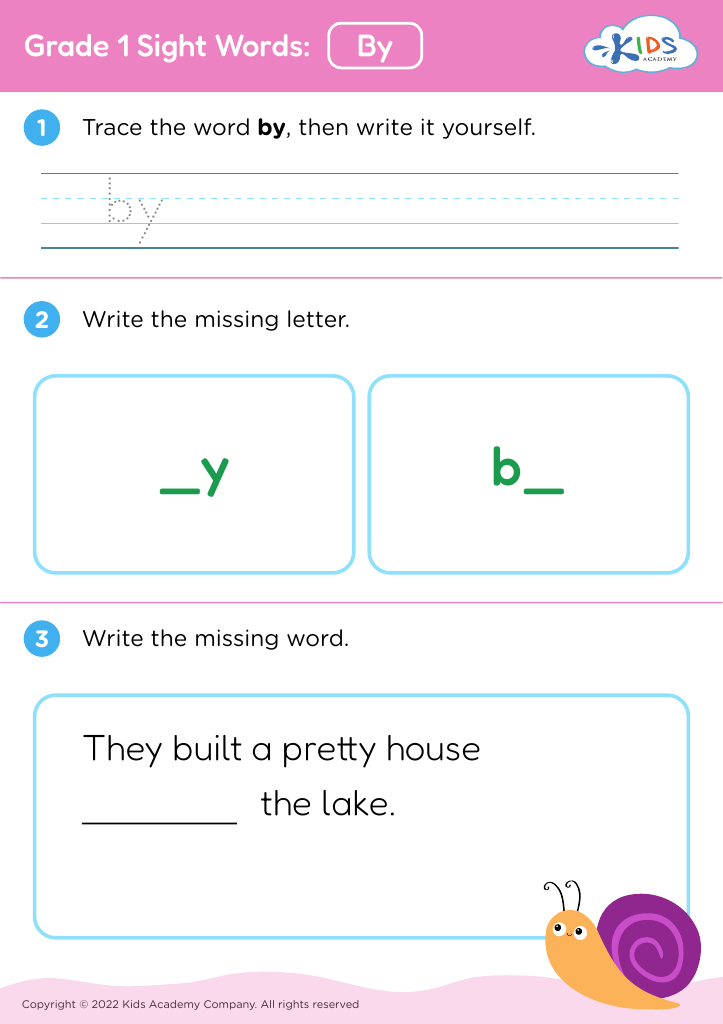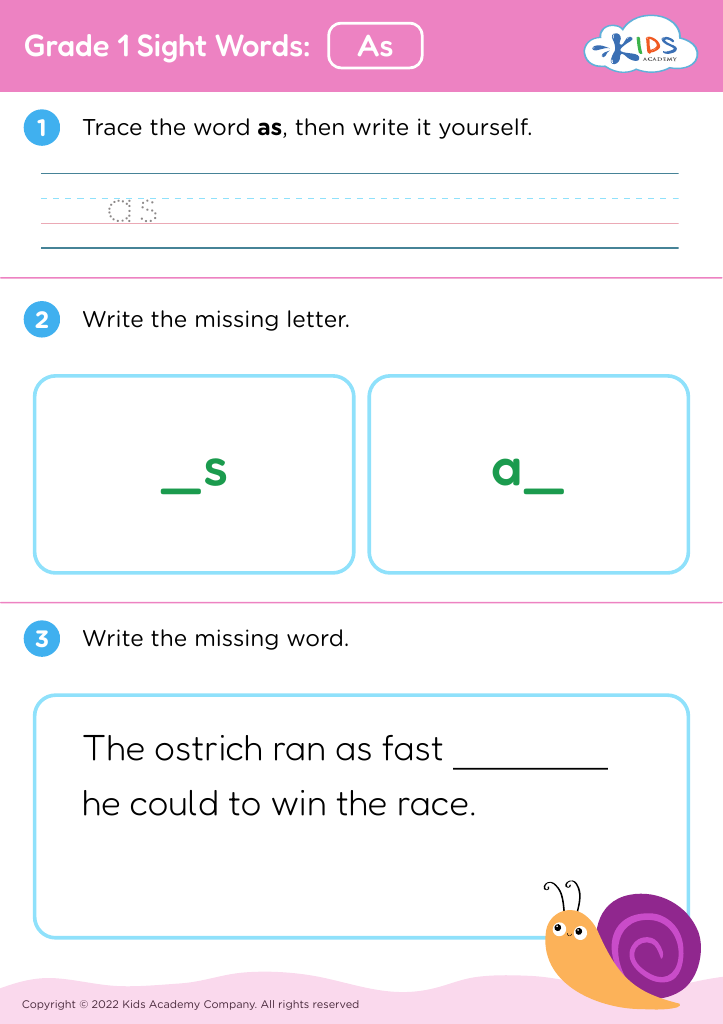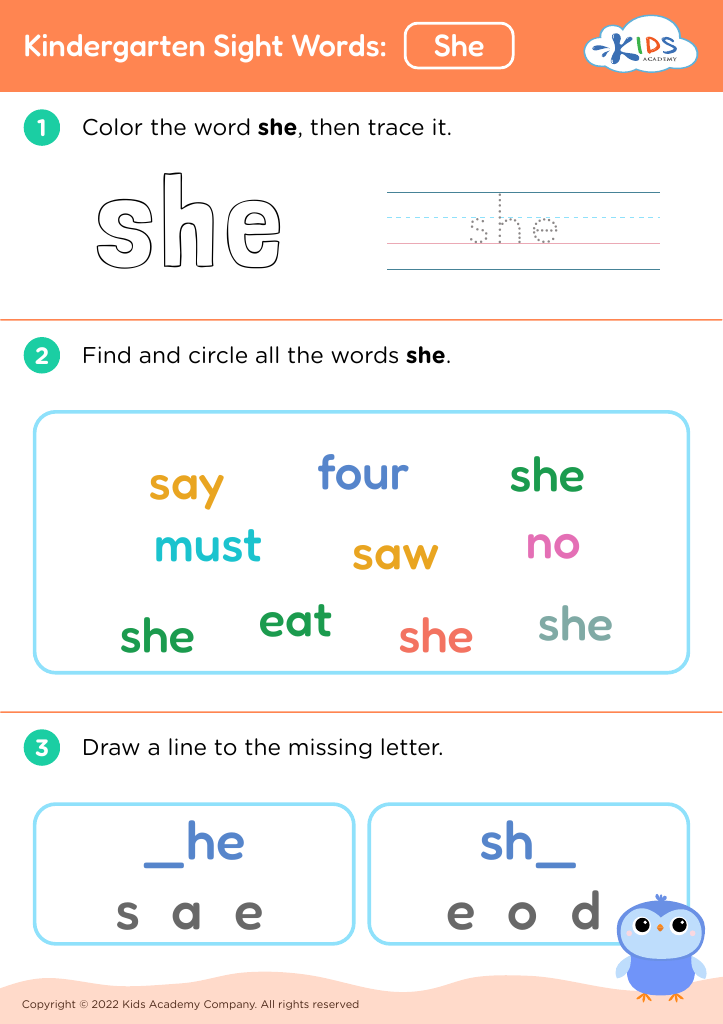Understanding symmetry Building Vocabulary Worksheets for Ages 4-7
4 filtered results
-
From - To
Explore our "Understanding Symmetry Building Vocabulary Worksheets" designed specifically for children ages 4-7. These engaging worksheets introduce young learners to the concept of symmetry in a fun and interactive way. Through a variety of exercises, including colorful illustrations and hands-on activities, children will build vocabulary related to shapes and patterns. Each worksheet fosters critical thinking skills while reinforcing early math concepts, making learning enjoyable and effective. Ideal for both classroom use and at-home learning, our resources promote creativity and enhance comprehension. Encourage your child's curiosity about the world around them and watch as their vocabulary flourishes with these captivating worksheets!
Understanding symmetry is essential for young children, as it lays the foundation for important cognitive skills such as spatial awareness, critical thinking, and problem-solving. For ages 4-7, children are naturally curious and learn best through exploration and play. Teaching them about symmetry helps stimulate creativity and encourages them to see the world from different perspectives. When children grasp basic concepts of symmetry, they begin to recognize patterns and relationships, both of which are crucial in mathematics and the sciences.
Building vocabulary around symmetry and shapes further enhances this learning. A rich vocabulary allows children to express their observations, participate in discussions, and articulate their understanding more clearly. It fosters effective communication and helps bolster their self-confidence when engaging with peers or adults. For instance, using words like "equal," "mirror," and "pattern" helps them make connections and reinforces their grasp of fundamental concepts.
Furthermore, vocabulary development supports literacy skills, paving the way for future academic success. When parents and teachers prioritize understanding symmetry alongside vocabulary enrichment, they create a stimulating environment conducive to holistic development—encouraging children to explore, discuss, and most importantly, enjoy learning about the world around them.









.jpg)










